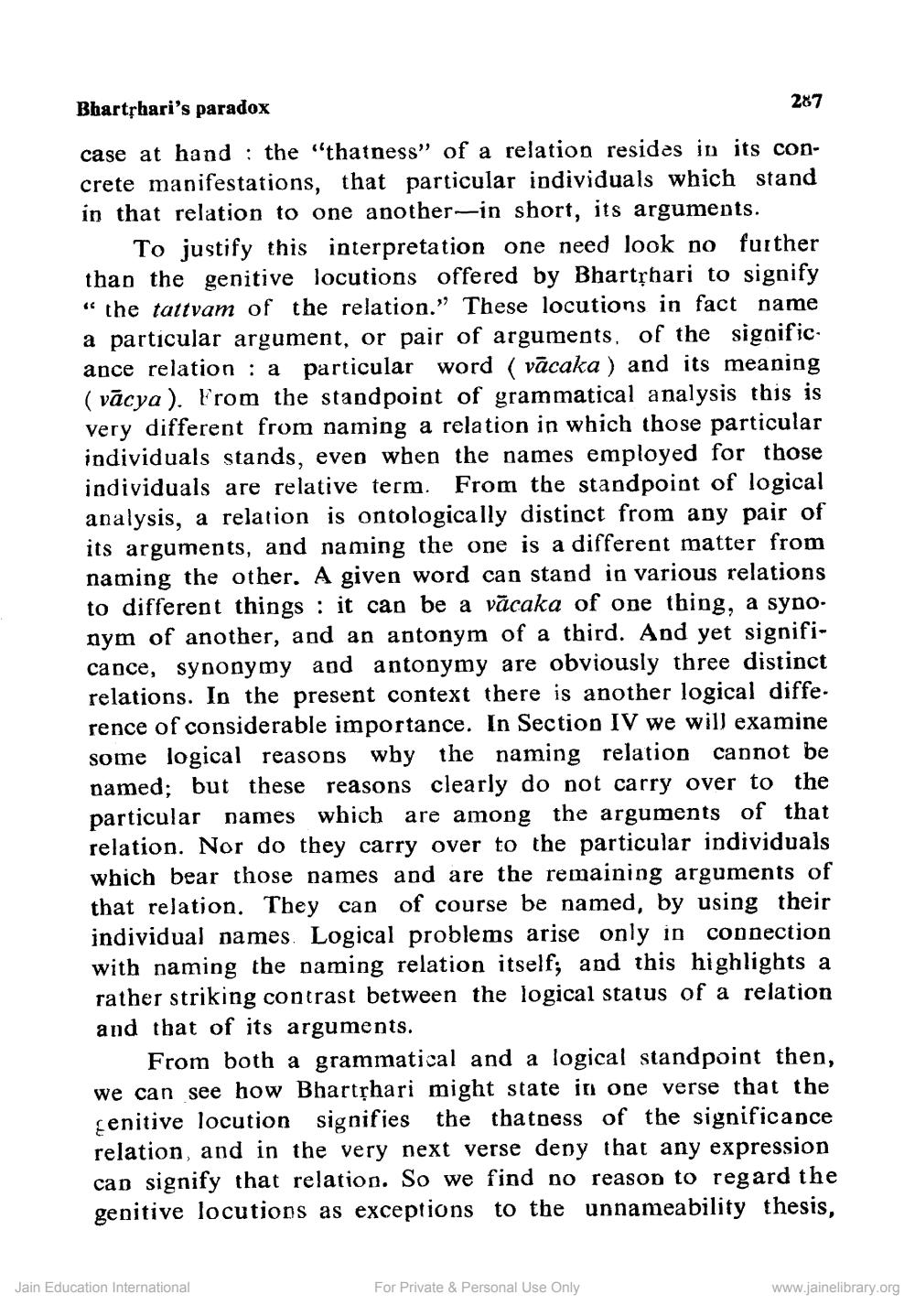________________
Bhartphari's paradox
287
case at hand : the "thatness" of a relation resides in its concrete manifestations, that particular individuals which stand in that relation to one another-in short, its arguments.
To justify this interpretation one need look no further than the genitive locutions offered by Bhartshari to signify “the tattvam of the relation." These locutions in fact name a particular argument, or pair of arguments, of the signific. ance relation : a particular word ( vācaka ) and its meaning (vācya). From the standpoint of grammatical analysis this is very different from naming a relation in which those particular individuals stands, even when the names employed for those individuals are relative term. From the standpoint of logical analysis, a relation is ontologically distinct from any pair of its arguments, and naming the one is a different matter from naming the other. A given word can stand in various relations to different things : it can be a vācaka of one thing, a syno. nym of another, and an antonym of a third. And yet significance, synonymy and antonymy are obviously three distinct relations. In the present context there is another logical diffe. rence of considerable importance. In Section IV we will examine some logical reasons why the naming relation cannot be named; but these reasons clearly do not carry over to the particular names which are among the arguments of that relation. Nor do they carry over to the particular individuals which bear those names and are the remaining arguments of that relation. They can of course be named, by using their individual names Logical problems arise only in connection with naming the naming relation itself; and this highlights a rather striking contrast between the logical status of a relation and that of its arguments.
From both a grammatical and a logical standpoint then, we can see how Bhartshari might state in one verse that the cenitive locution signifies the thatness of the significance relation, and in the very next verse deny that any expression can signify that relation. So we find no reason to regard the genitive locutions as exceptions to the unnameability thesis,
Jain Education International
For Private & Personal Use Only
www.jainelibrary.org




